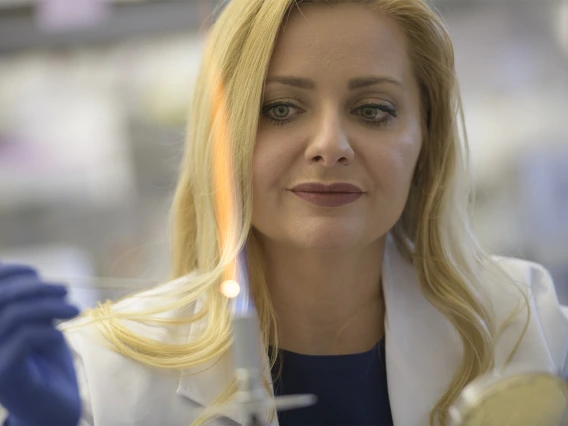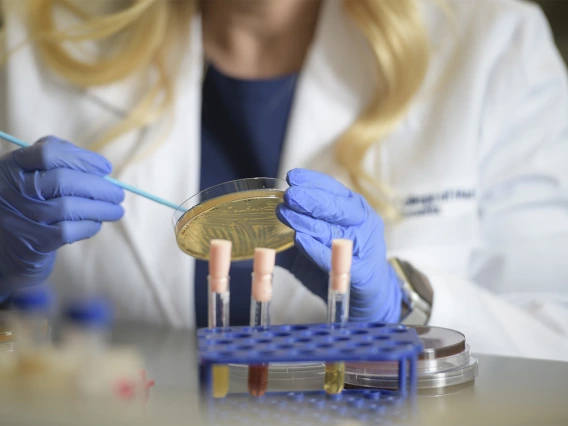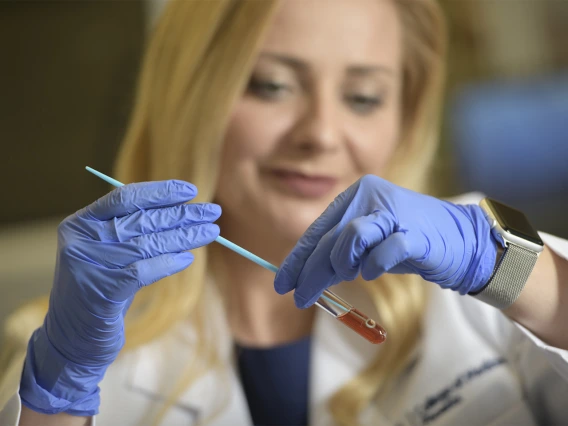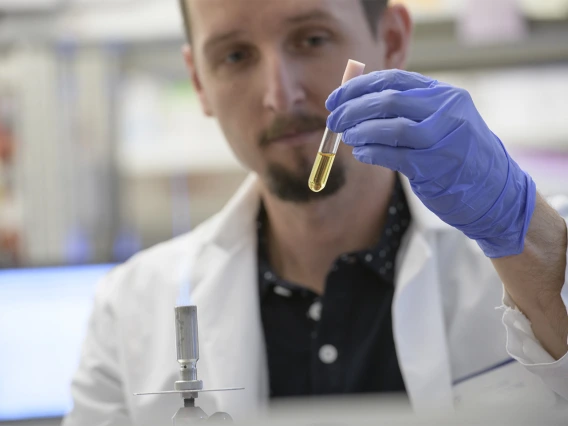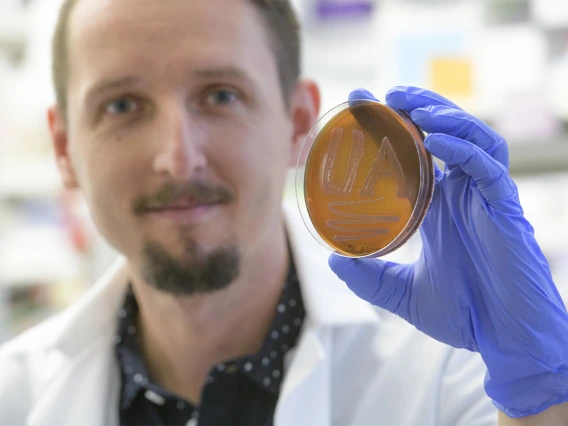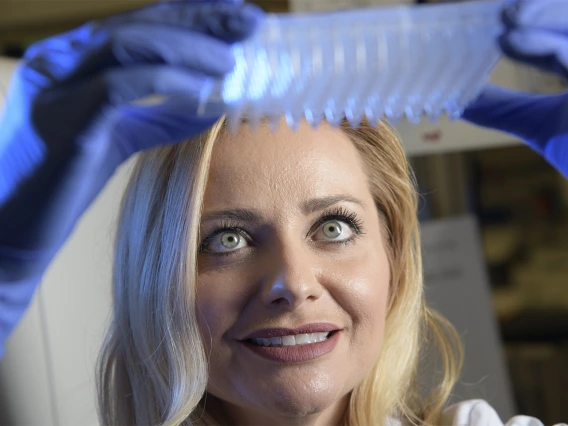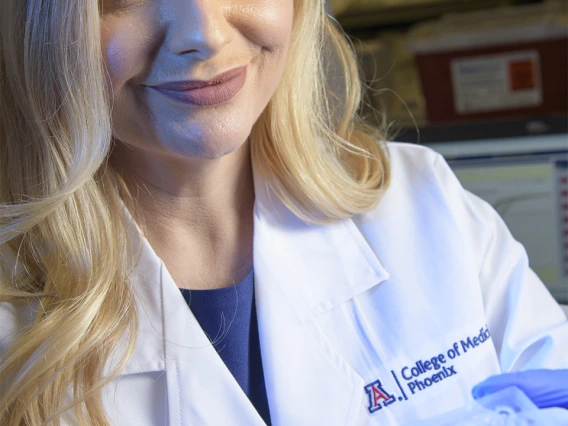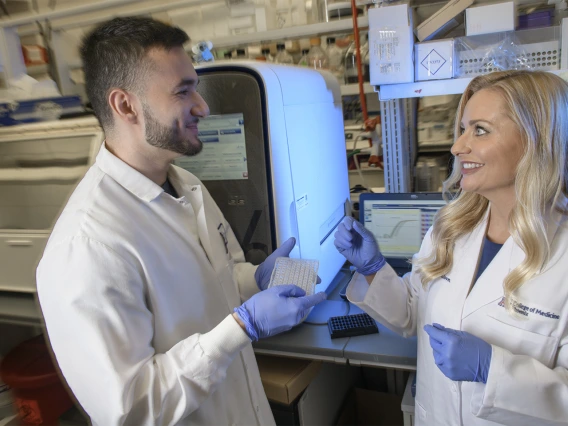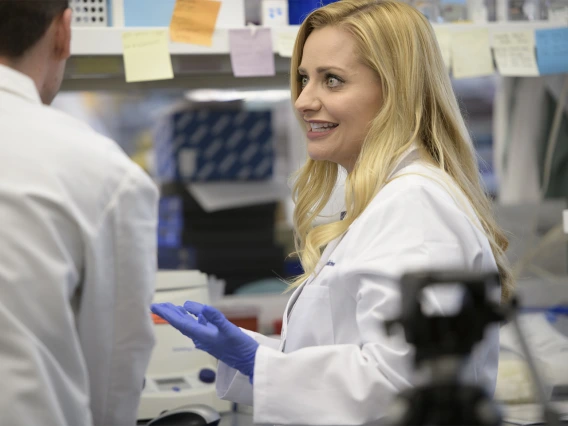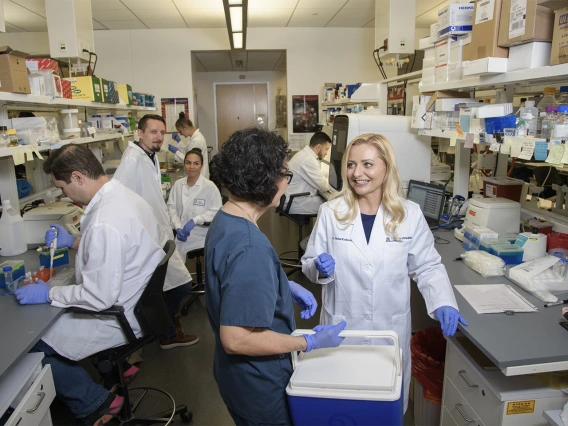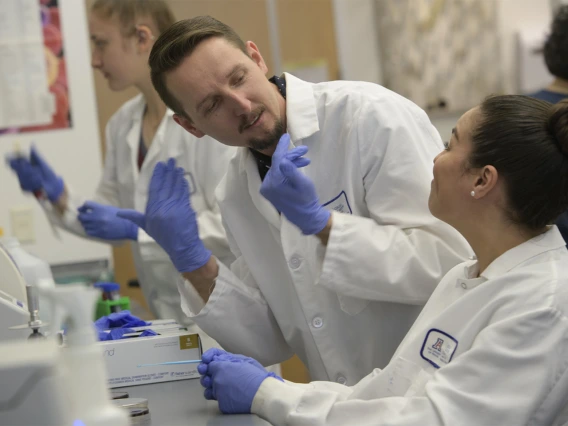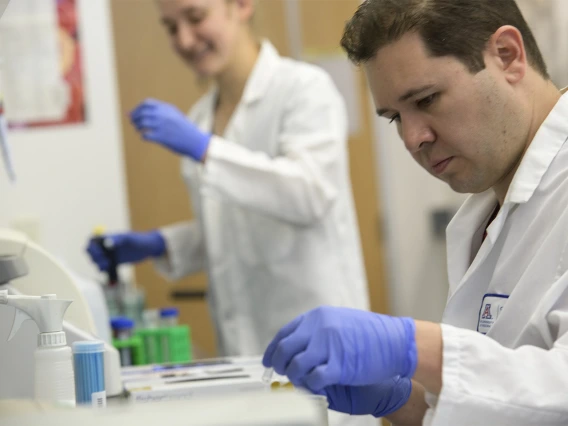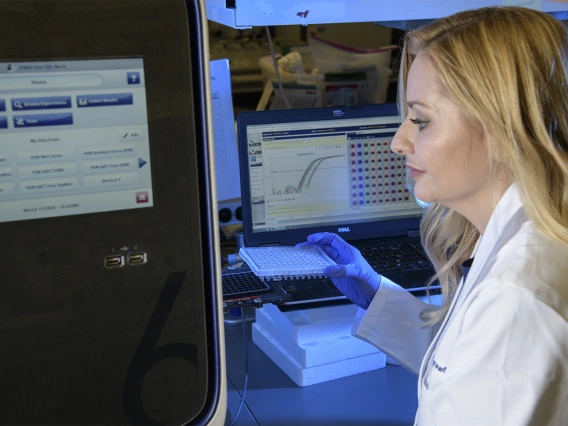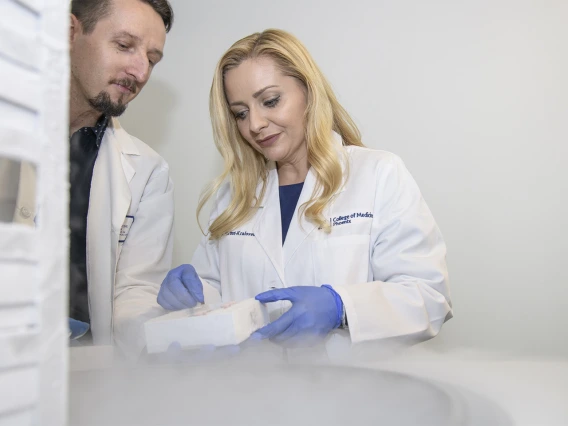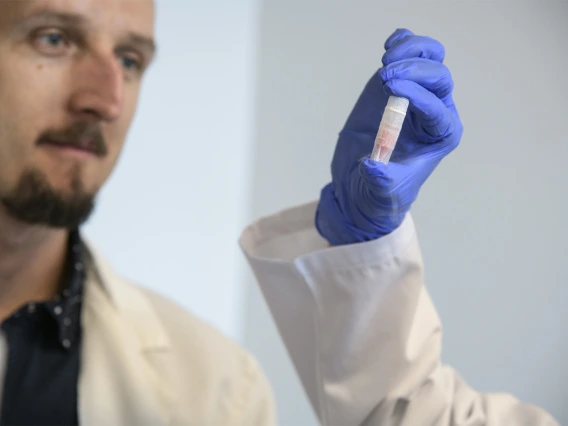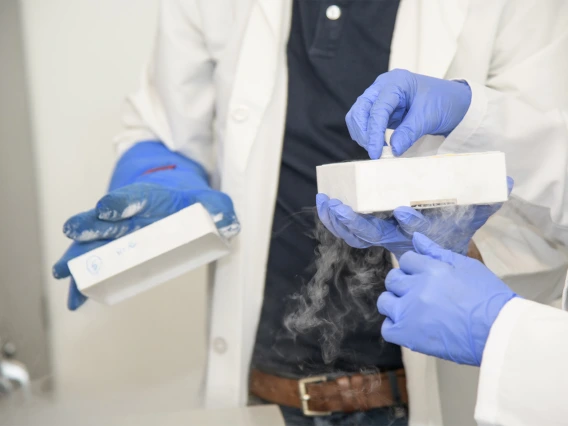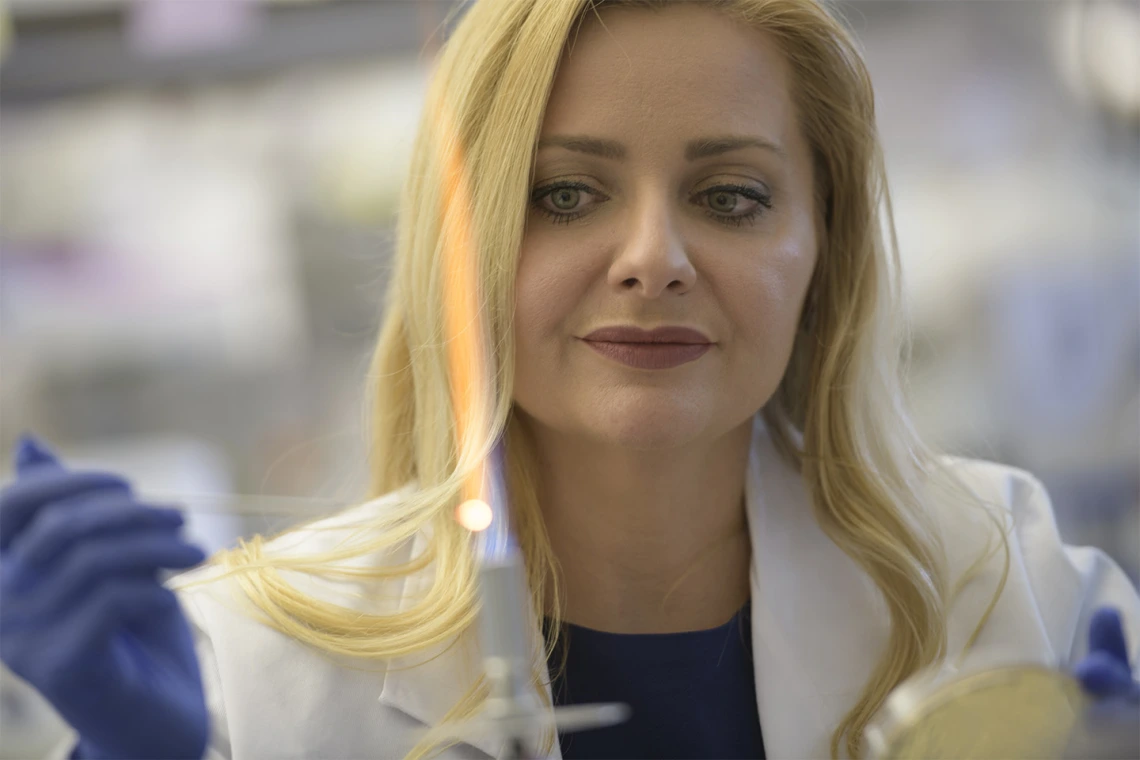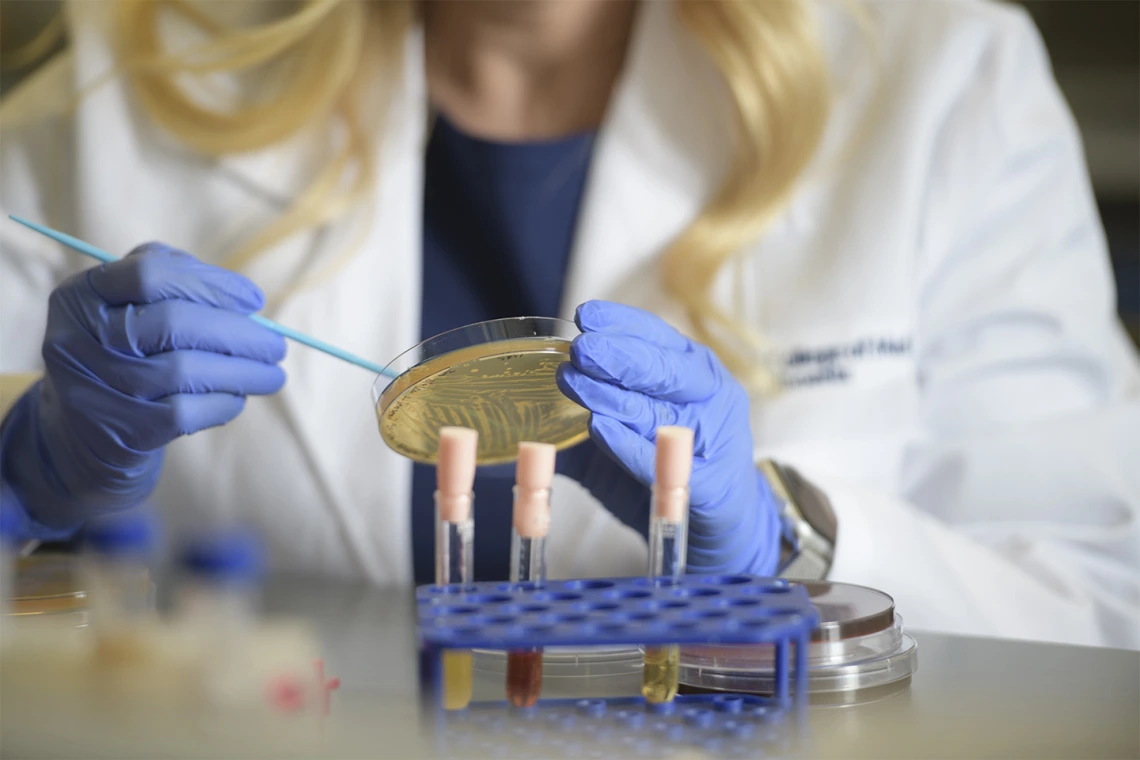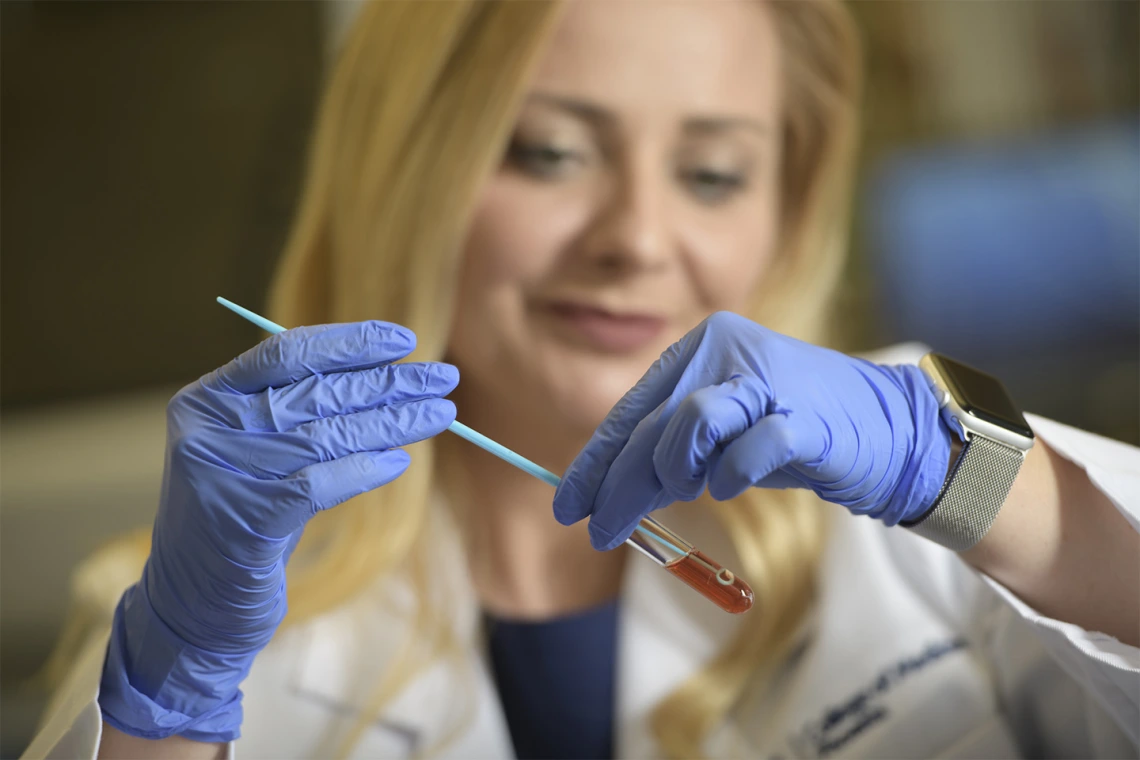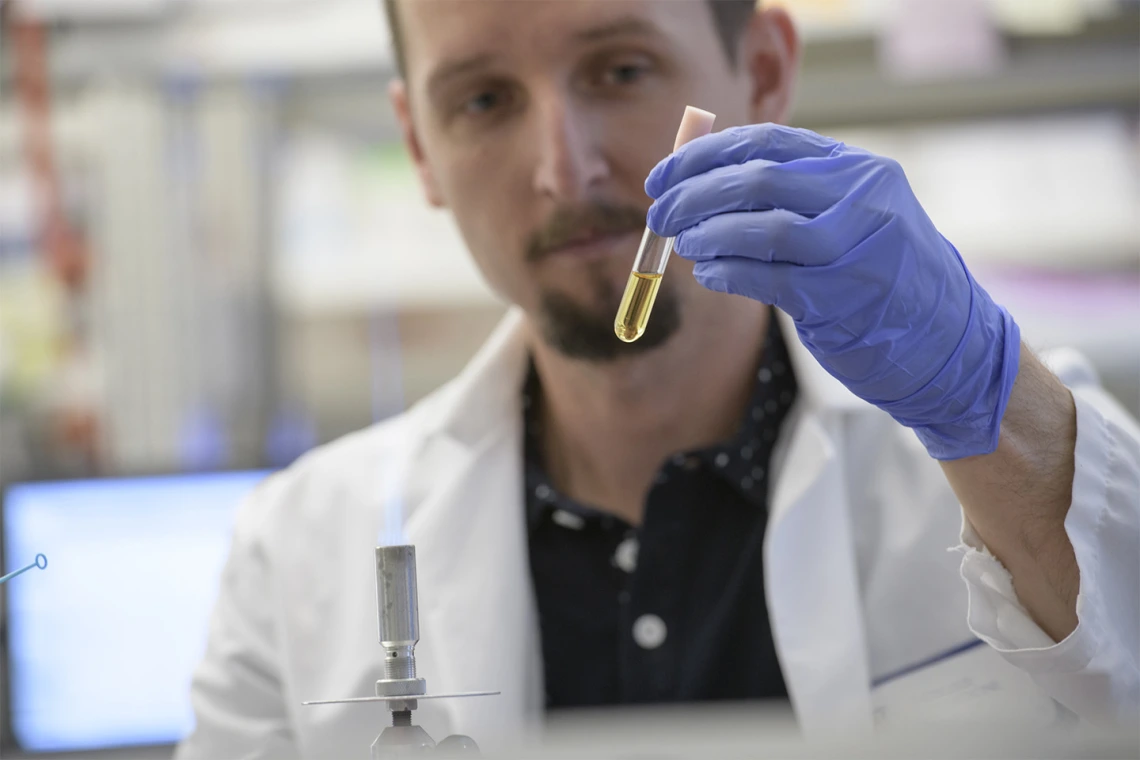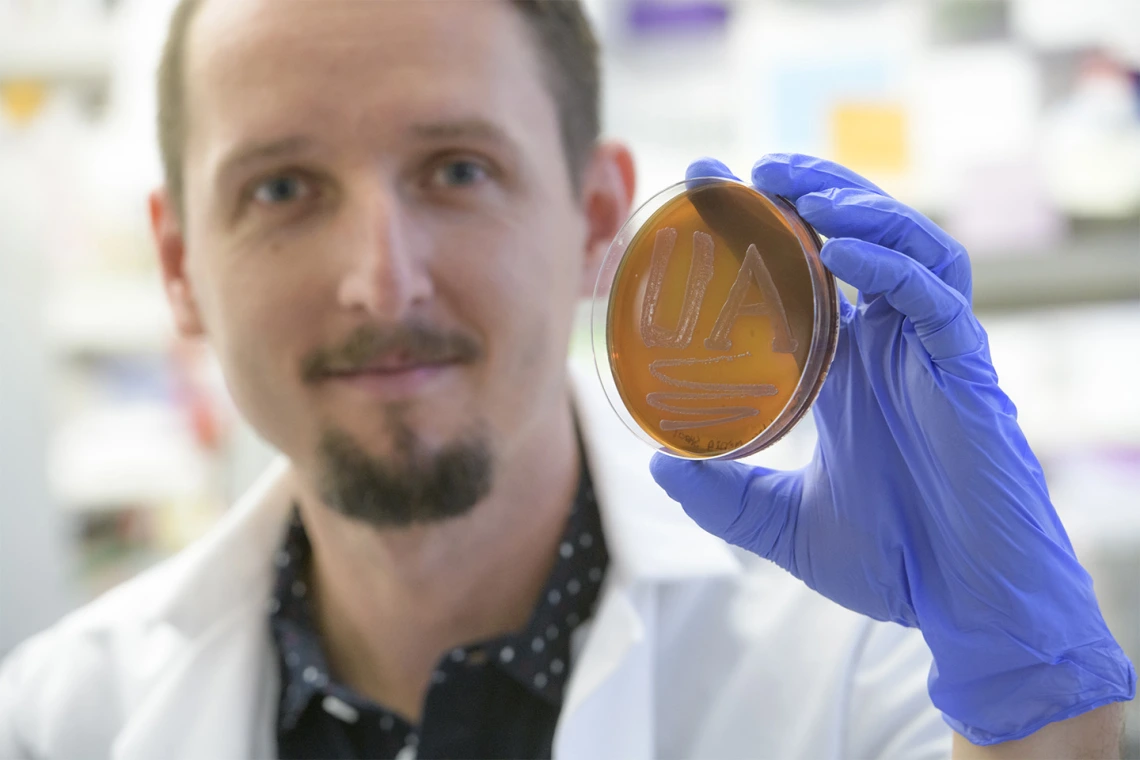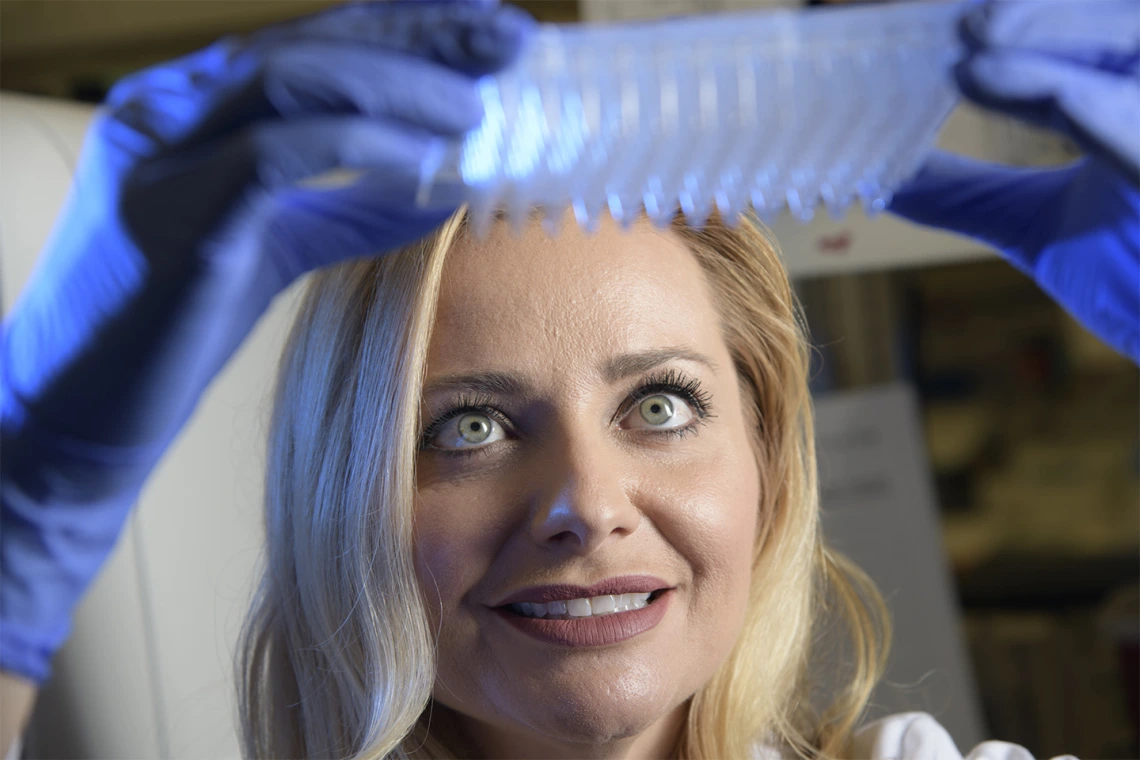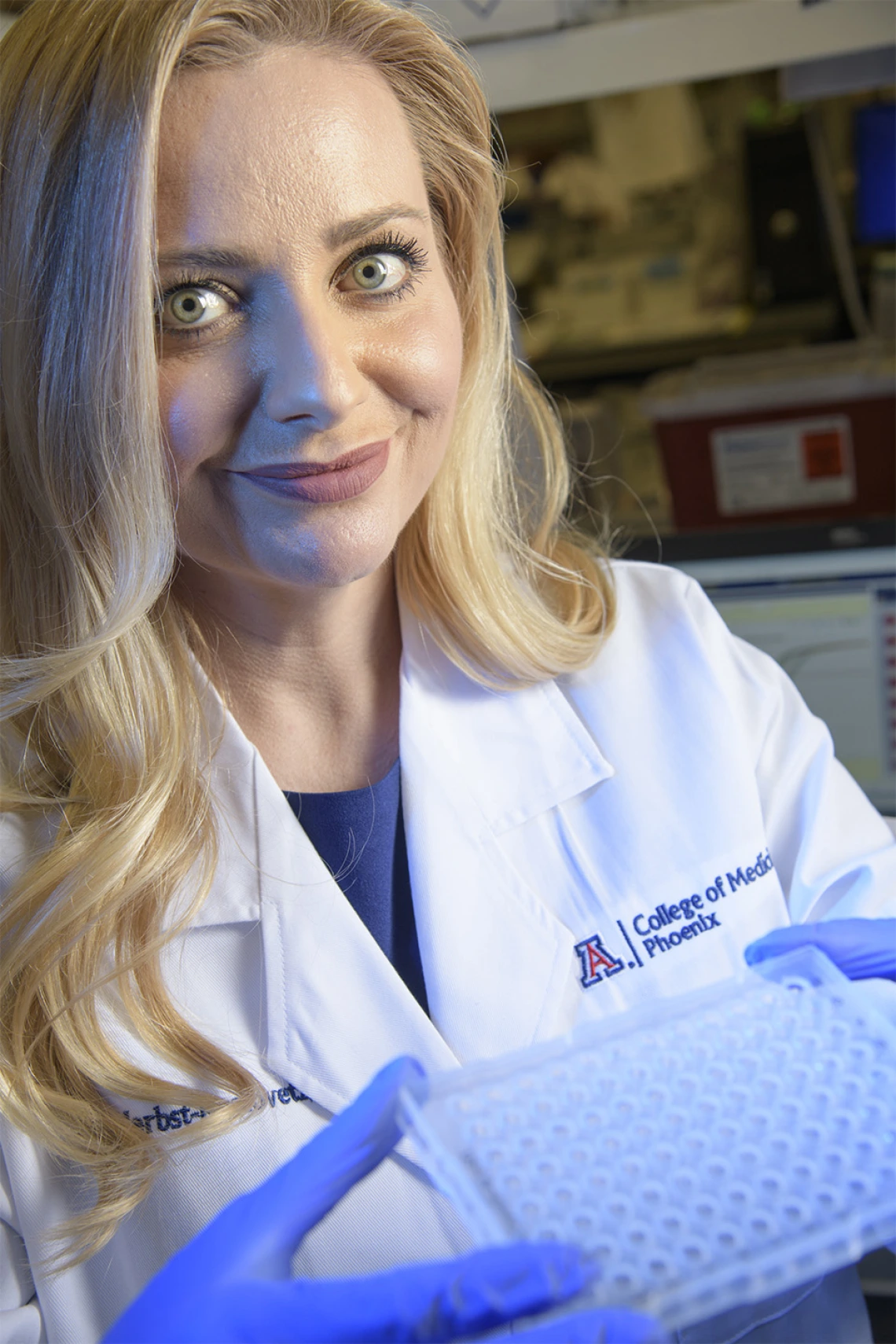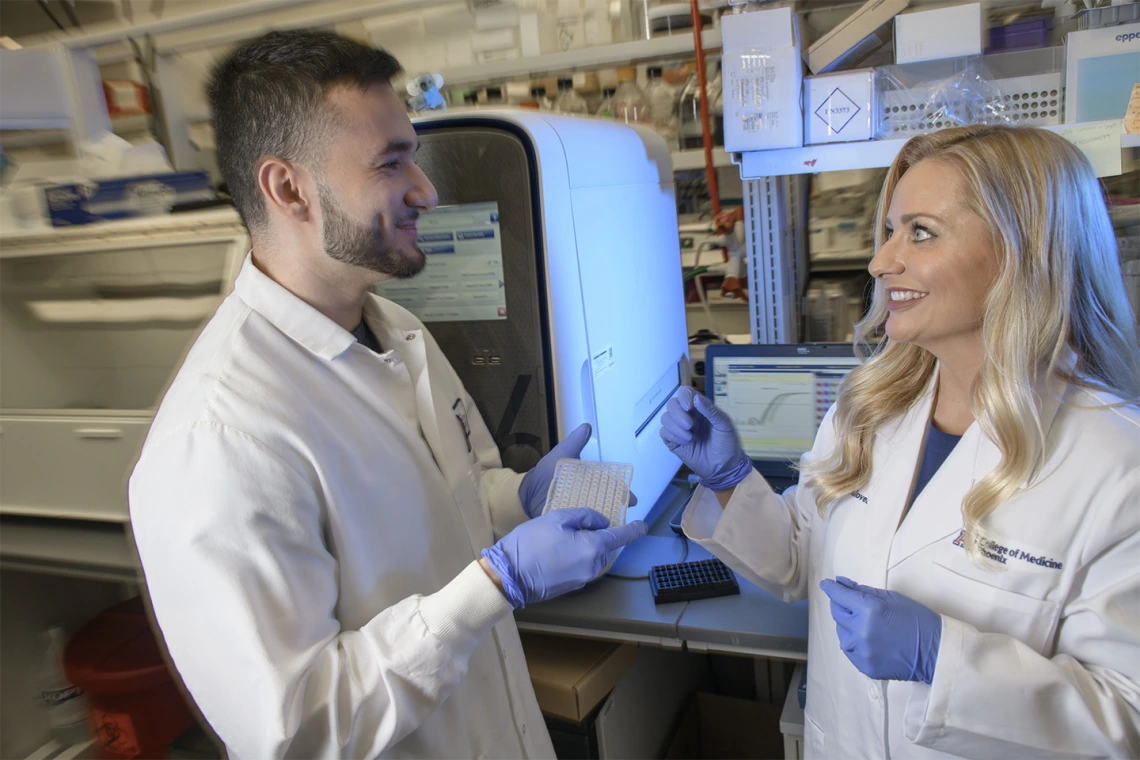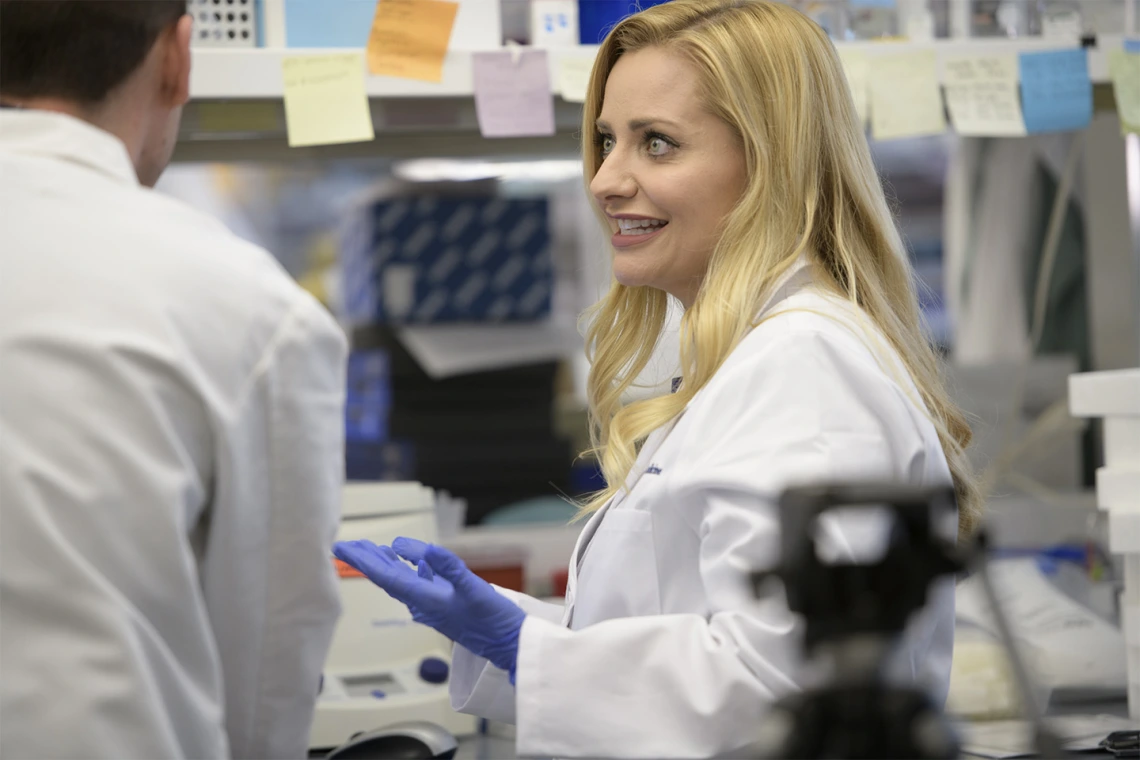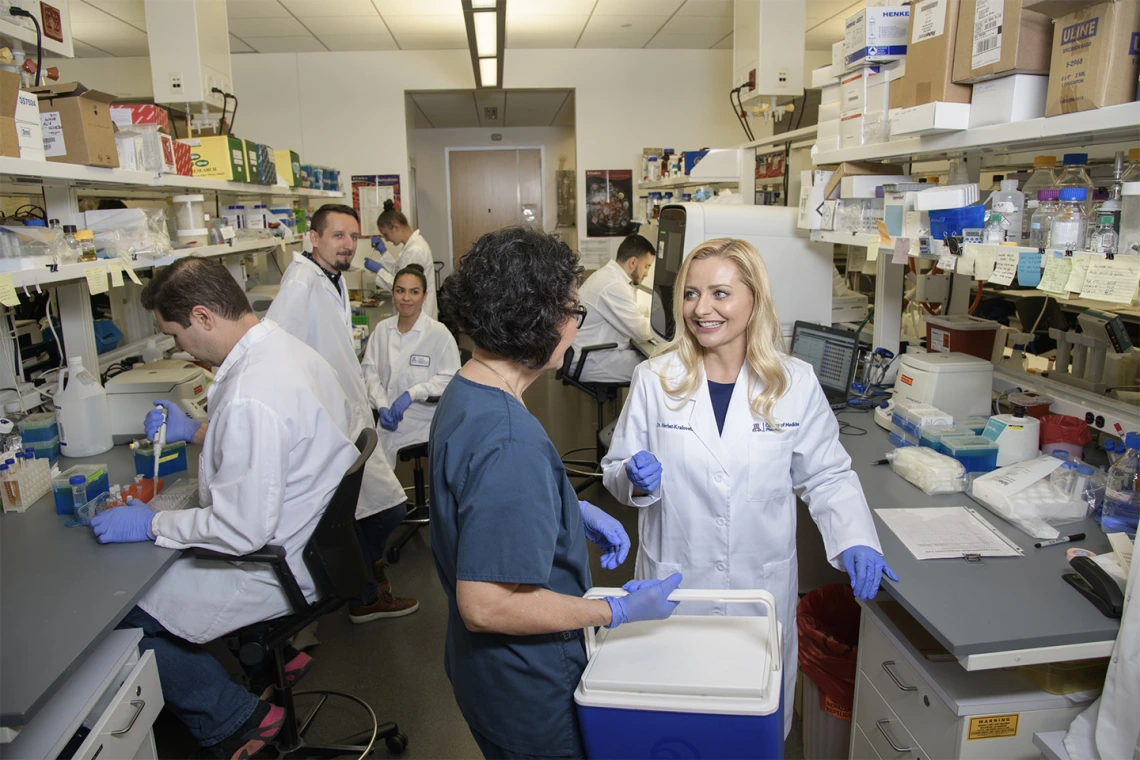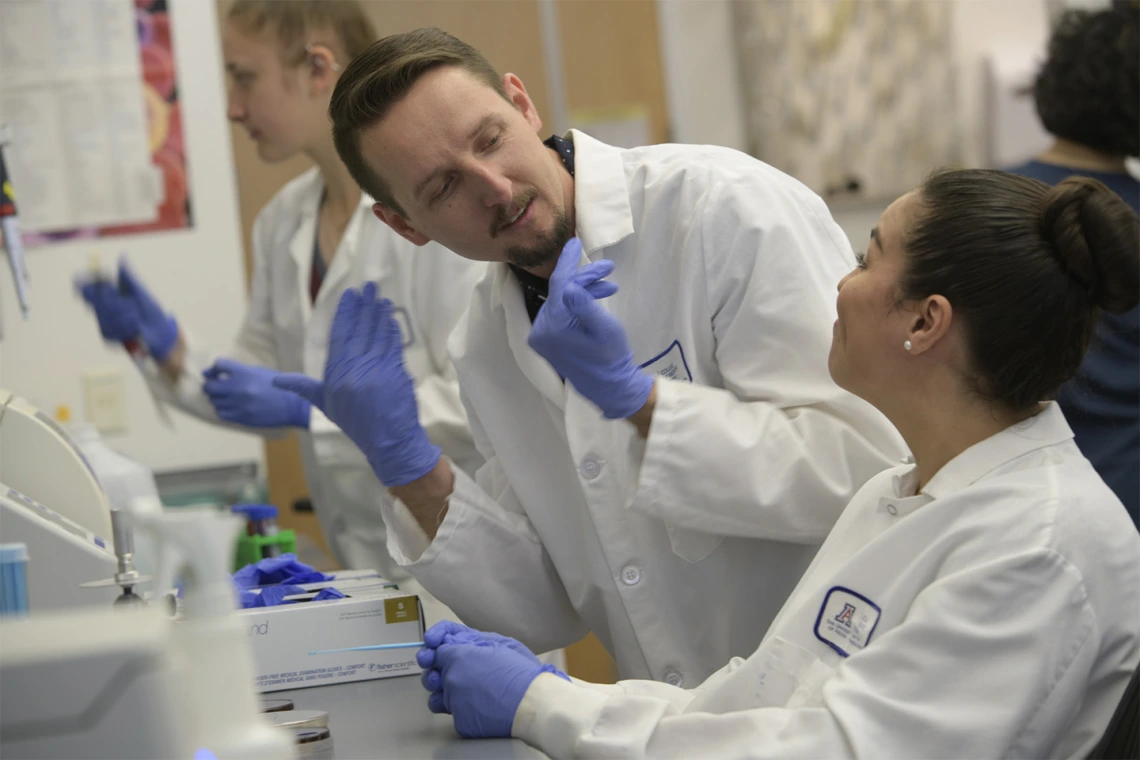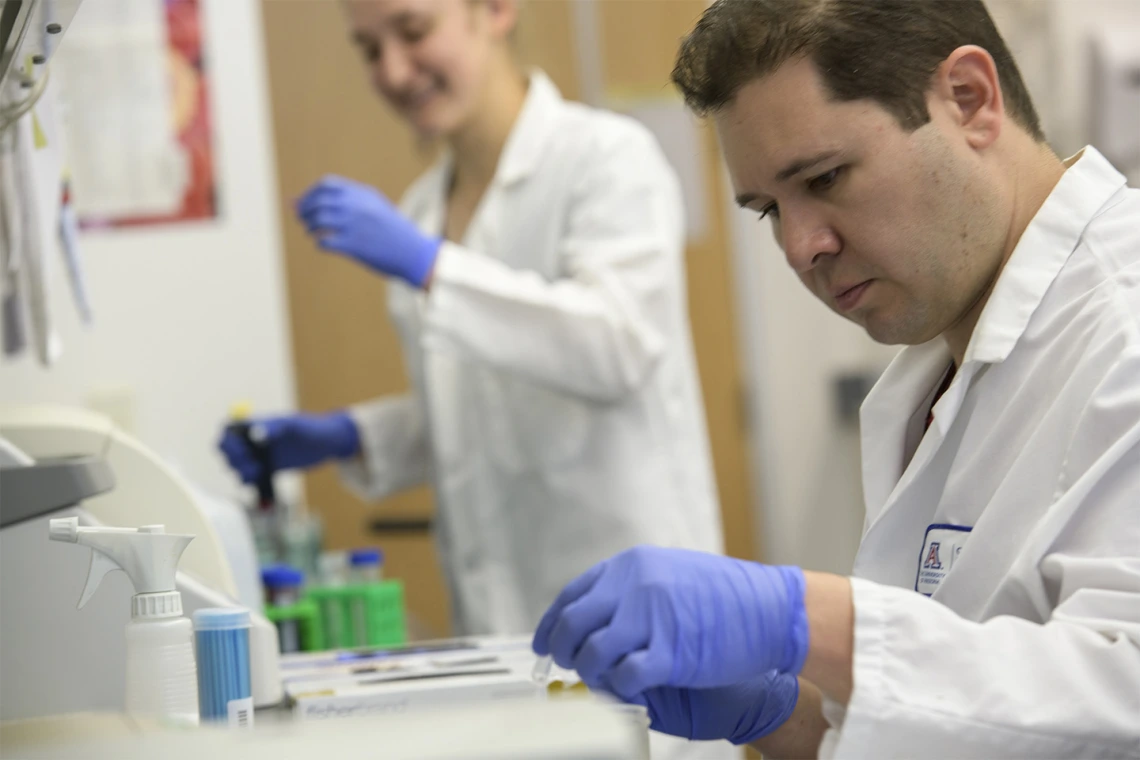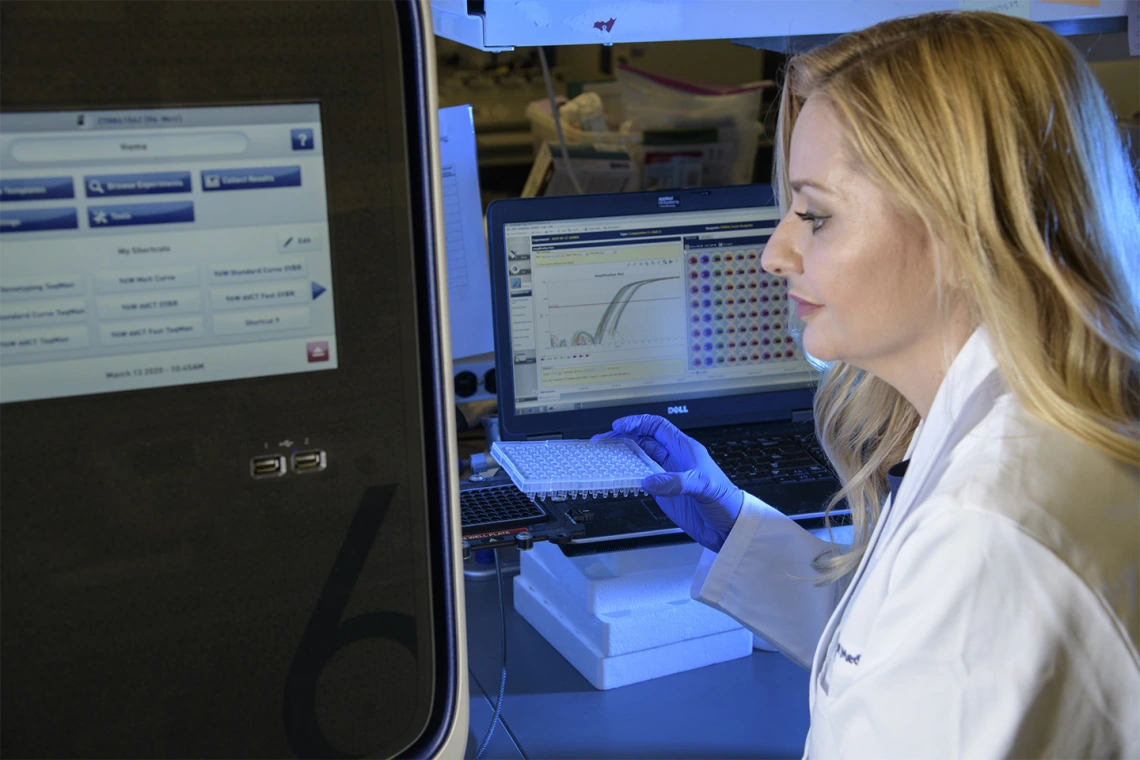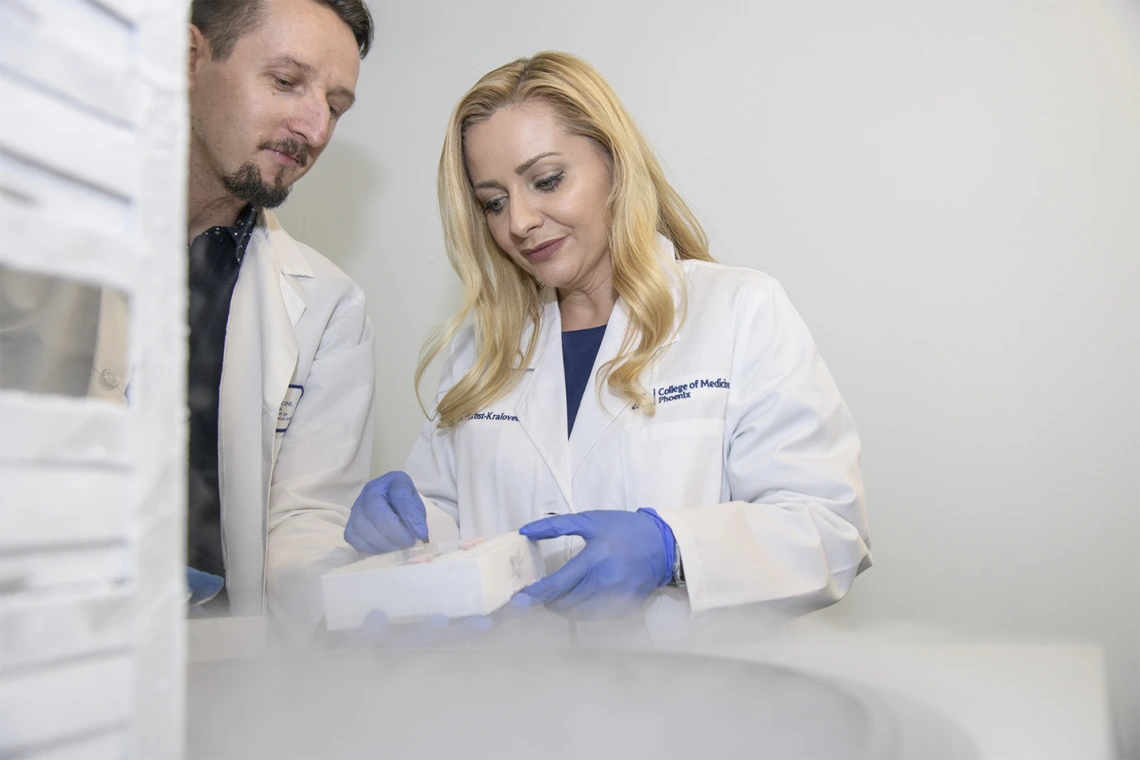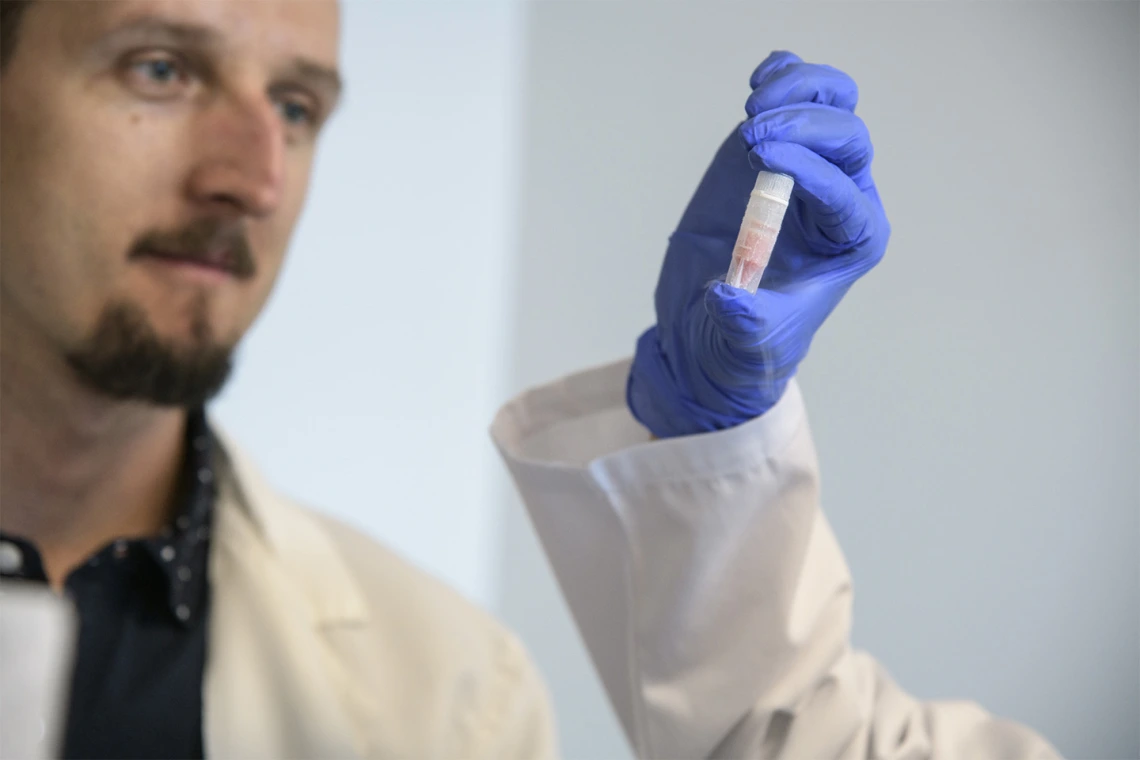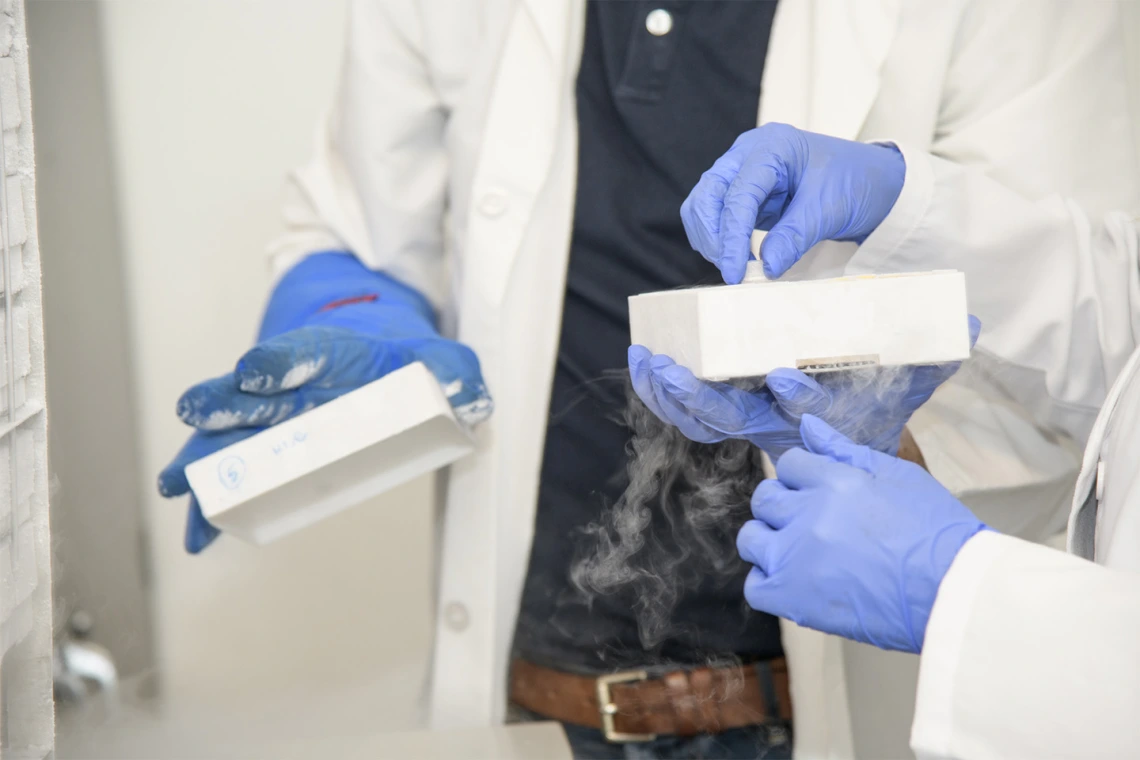Unlocking the Secrets of the Vaginal Microbiome
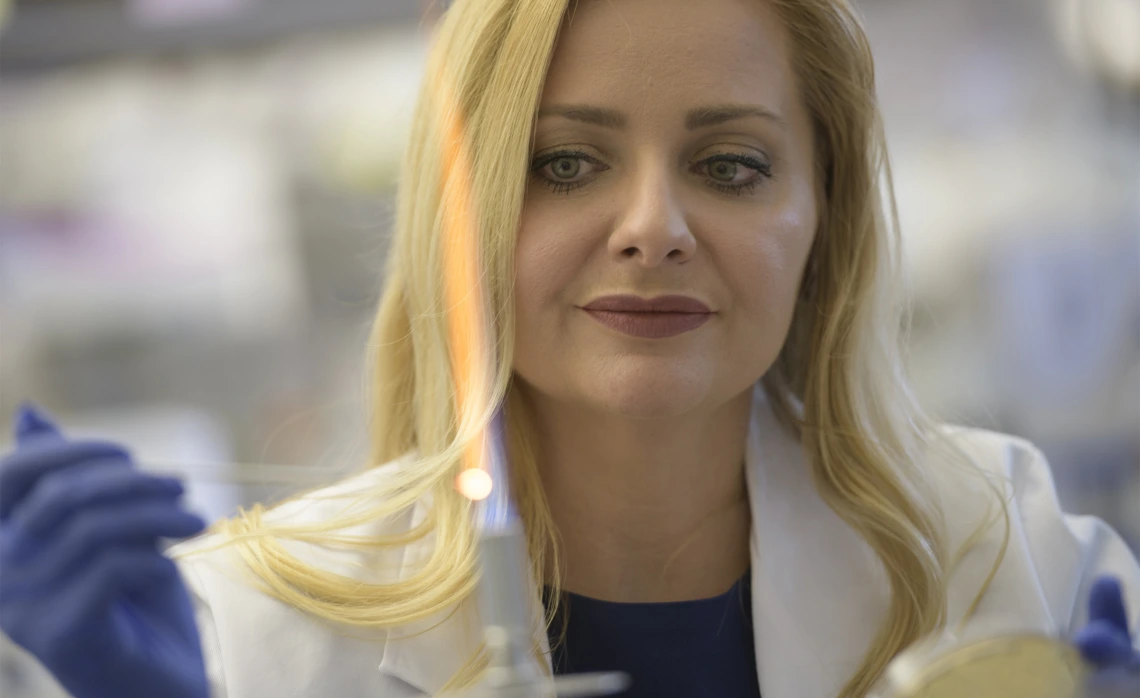
University of Arizona Health Sciences researcher Melissa Herbst-Kralovetz, PhD, hopes to learn how the bacteria that live in the vagina help or harm gynecologic health.
Unanswered questions swirl around the microbiome — habitats in our bodies that diverse species of bacteria call home. Scientists are only just starting to scratch the surface of how these bacteria interact with our unique body chemistries to influence our health. One of those scientists is Melissa Herbst-Kralovetz, PhD, associate professor of basic medical sciences and obstetrics/gynecology at the University of Arizona College of Medicine – Phoenix, who says the riddles posed by the vaginal microbiome captivated her early in her career. Research coming out of her laboratory and labs across the world is pointing to similar conclusions: that there are “good” vaginal bacteria that are associated with health, and “bad” bacteria that are associated with gynecologic cancers, such as cervical cancer, endometrial cancer and ovarian cancer. From the Phoenix Biomedical Campus in downtown Phoenix, Dr. Herbst-Kralovetz leads a team of researchers who are working to better understand how to predict, prevent and treat these diseases.


